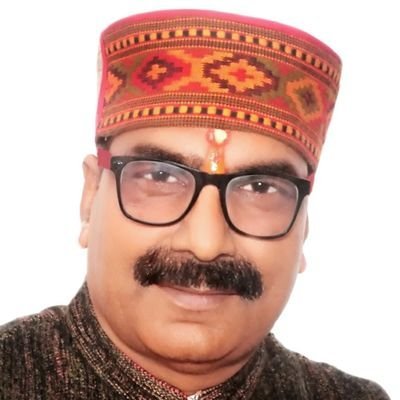Chief Minister of Karnataka Shri Basavaraj Bommai ji, my colleague in the Council of Ministers Pralhad Joshi ji, our senior colleague in Parliament Dr. Virendra Hegde ji, His Holiness Swami Nirmalanandanatha Swami ji, His Holiness Sri Sri Shivarathri Deshikendra Swami ji, Sri Sri Vishwaprasanna Theertha Swami ji, Sri Sri Nanjavadutha Swami ji, Sri Sri Shivamurthy Shivacharya Swami ji, my other colleagues in the Union Cabinet, Members of Parliament, C.T. Ravi ji, all members of the Delhi-Karnataka Sangha, ladies and gentlemen!
First of all, I welcome all of you. Today, the Delhi-Karnataka Sangha is carrying forward such a glorious legacy of ‘Elladaru Iru, Enthadaru Iru, Endendigu ni Kannadavagiru' (No matter where you are or how you are, remember that you are a Kannadiga). This celebration of 75 years of 'Delhi Karnataka Sangha' is taking place at a time when the country is also celebrating the Amrit Mahotsav of 75 years of independence. When we look at the events 75 years ago and assess them, we see the immortal soul of India in this effort. The formation of the Delhi-Karnataka Sangha shows how the people in the first phase of independence were united in the mission of strengthening the country. I am happy that the same energy and dedication of the country is alive today even in the first phase of the ‘Amrit Kaal’ of independence. On this occasion, I bow down to all the great personalities who dreamed of this Sangha and made it a reality. The journey of 75 years is not an easy one. There are many ups and downs and one has to take along many people in this journey. All those who have run this Sangha, taken it forward and developed it for 75 years deserve congratulations. I also salute the people of Karnataka for their efforts in nation building.
Friends,
We cannot define India without Karnataka, be it India's identity, India's traditions, or India's inspirations. The role of Karnataka in India since mythological times has been that of Hanuman. There is neither Ram nor Ramayana without Hanuman. If any mission of era change starts from Ayodhya and goes to Rameshwaram, then it gains strength only in Karnataka.
Brothers and sisters,
When invaders tried to destroy India during medieval times, and damaged Shivlings like Somnath, saints like Devara Dasimayya, Madara Chennaiah, Dohar Kakkayya, and Lord Basaveshwara of Karnataka connected people to the ‘Ishtalinga’ (symbolism for Lord Shiva). When external forces attack the country, heroes like Rani Abbakka, Onake Obavva, Rani Chennamma and Krantiveera Sangolli Rayanna stand like a wall before them. Even after independence, Karnataka has always inspired India in the form of Maharaja Krishnaraja Wadiyar, the first Vice-Chancellor of 'Kashi Hindu University', Field Marshal K.M. Cariappa and Bharat Ratna M Visvesvaraya. And now we were listening to the experiences of Kashi from Pujya Swamiji.
Friends,
The people of Kannada have always lived by the mantra of 'Ek Bharat, Shreshtha Bharat'. They get his inspiration from the land of Karnataka itself. We just heard the ‘Nadageete’ composition of national poet Kuvempu and Pujya Swamiji also explained it. What wonderful words: ‘Jaya bhārata jananiya tanujāte, jaya hē karnāṭaka mate’ (Victory to you Mother Karnataka, The Daughter of Mother India!). How intimately he has praised Mother Karnataka when he writes ‘Jaya bhārata jananiya tanujāte’. This also describes the Indian civilization and also mentions the importance and role of Karnataka. When we understand the spirit of this song, we also understand the spirit of 'Ek Bharat Shreshtha Bharat'.
Friends,
Today, when India is presiding over an important global group like G-20, our ideals as Mother of Democracy are guiding us. Lord Basaveshwara's words through 'Anubhava Mantapa', his democratic teachings, are like a light for India. It is my good fortune that I got the opportunity to inaugurate the statue of Lord Basaveshwara in London. I also got the opportunity to release his teachings in different languages. These achievements are proof that Karnataka's thought tradition as well as its influence is immortal.
Friends,
Karnataka is the land of traditions as well as technology. It has historical culture as well as modern artificial intelligence. I had a meeting with the German Chancellor this morning and I am glad that his program is being held in Bengaluru from tomorrow. Today an important meeting of the G20 group is also underway in Bengaluru.
Friends,
When I meet any head of state, I try that he must see both sides of ancient and modern India. Tradition and technology is also the temperament of new India today. Today the country is moving forward taking development and heritage, progress and traditions together. Today, on the one hand, India is reviving its ancient temples and cultural centers, and at the same time, we also become the world leader in digital payments. Today's India is bringing back our centuries-old stolen idols and artefacts from abroad. And, today's India is also getting record Foreign Direct Investment from abroad. This is the development path of new India which will lead us to the goal of developed India.
Friends,
Today the development of Karnataka is the top priority for the country, and for the Government of Karnataka. Earlier there was a time when people used to take the money out of Karnataka after forming the government. But, today the country's money and resources are devoted sincerely for the development of Karnataka. You see, the Centre used to give 11,000 crore rupees annually to the state of Karnataka between 2009 and 2014. While 30,000 crore rupees have been sent from the Centre to Karnataka so far between 2019 and 2023 after the formation of our government. Less than Rs 4,000 crore was spent on railway projects in Karnataka between 2009 and 2014 when the railway minister at the Centre was from Karnataka. In other words, less than 4,000 crore rupees in five years! On the other hand, our government has sanctioned about 7,000 crore rupees for the rail infrastructure of Karnataka in this year’s budget. I am talking about this year. A total of 6000 crore rupees was given to Karnataka during the five years of the previous government for national highways. But our government has invested 5,000 crore rupees every year in Karnataka in these nine years. See the difference between 6,000 crore rupees in 5 years and 5,000 crore rupees every year!
Friends,
The long standing demand of the Upper Bhadra Project is also being fulfilled by our government. This is going to benefit farmers of the large drought prone areas of Central Karnataka, including Tumakuru, Chikkmagaluru, Chitradurga and Davanagere. This new pace of development is rapidly changing the picture of Karnataka. Those who are living in Delhi and have not visited their village for a long time will be surprised and proud when they go there.
Friends,
The 75 years of the Delhi Karnataka Sangha have brought us many important moments of growth, achievement and flourishing of knowledge. Now the next 25 years are even more important. You can do many important things in the Amrit Kaal and the next 25 years of the Delhi Karnataka Sangha. The two things you can focus on are – ‘Kalike Mattu Kale’, that is knowledge and art. If we talk about ‘Kalike’, we know how beautiful our Kannada language is and how rich its literature is. At the same time, there is another specialty of the Kannada language. The speakers of this language have a very strong reading habit. The number of readers of Kannada language is also very high. Today, when a good new book comes out in Kannada, the publishers have to reprint it within a few weeks. Other languages do not have that kind of fortune that Karnataka has.
Those of you living in Delhi must be aware of the language difficulties for the new generation living outside their native state. Therefore, whether it is the words of Jagadguru Basaveshwara, or the songs of Hari Das, whether it is the version of Mahabharata written by Kumar Vyasa, or the Ramayana Darshanam written by Kuvempu, it is very important to pass on this vast heritage to the next generation. I heard you run a library too. You regularly organize many programs like study circle sessions and literature related discussions. You can make it more effective. With this you can help the children of Kannadigas of Delhi to develop the habit of reading in Kannada. The spread of ‘Kalike’ or knowledge from such efforts will influence the Kannada people of Delhi as well as others -- helping both ‘Kannada Kaliyiri’ i.e. learning Kannada and ‘Kannada Kalisiri’ i.e. teaching Kannada.
Friends,
Along with ‘Kalike’, Karnataka has also achieved extraordinary achievements in the field of ‘Kale’ i.e., art. I am grateful that I got a chance to visit the culture of entire Karnataka in this program in such a short span of time. Karnataka is rich in both classical art and Janapada art. From Kansale to the Carnatic style of music, from Bharatnatyam to Yakshagana, every form of Carnatic art fills us with joy. Delhi Karnataka Sangha has organized many such programs over the years. But now there is a need to take these efforts to the next level. I urge that every Delhi Kannadiga family should try to bring a non-Kannada family along with them whenever such a program is held in future so that they can witness the splendor of Karnataka and enjoy the rich arts of Karnataka. Some films depicting Kannada culture have become very popular among non-Kannada people as well. This has increased the curiosity of people to know and understand Karnataka and we have to utilise this curiosity. Also, I have one more expectation from you. Artists and enlightened people from Karnataka who have come here must visit places like the National War Memorial, PM Museum and Kartavya Path in Delhi. You will get to see a lot that will fill you with pride. You would feel that these things should have been done long ago. I would like you to share your experiences here with the people of Karnataka.
Friends,
At present, the world is celebrating the 'International Year of Millets' on the initiative of India. Karnataka has been the main center of Indian millets i.e. Siri Dhanya. Your Shree Anna-Ragi is also a part of the culture and social identity of Karnataka. Programs were also started for the promotion of 'Siri Dhanya' in Karnataka from the time of our Yeddyurappa ji. Today the entire country is following the path of Kannadigas, and has started calling coarse cereals as Shree Anna. When the entire world is acknowledging the benefits and needs of Shree Anna, its demand is also going to step up in the near future. This is going to greatly benefit the people and the small farmers of Karnataka.
Friends,
When India completes 100 years of its independence as a developed nation in 2047, the Delhi-Karnataka Sangha will also enter its hundredth year. Your contributions to the glory of India's immortality will also be discussed at that time. I once again wish you all the very best for this grand ceremony and for this journey of 75 years. I also express my heartfelt gratitude to the revered saints who blessed and inspired us. I am feeling proud that I got the good fortune to receive the blessings of revered saints as well. I once again thank you all from the bottom of my heart. Speak with me: Bharat Mata Ki – Jai, Bharat Mata Ki – Jai, Bharat Mata Ki – Jai!

























